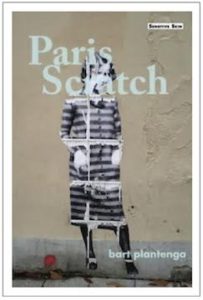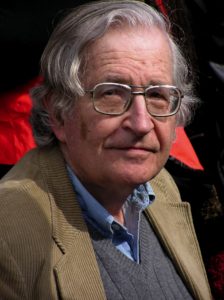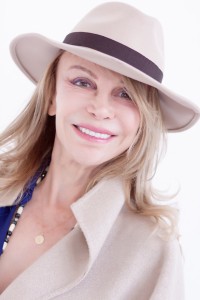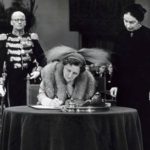Adele Peters ~ Meet The Man Building A Plastic Bottle Village In Panama
When Robert Bezeau moved from Montreal to Panama in 2009, one of the first things he noticed was the trash: the beaches surrounding the island where he lived were lined with plastic bottles. In a year and a half, working with volunteers, he estimates that he collected more than a million bottles for recycling.
Surrounded by piles of bottles, Bezeau started wondering if they could be used for something new—a building material for houses in what he calls the Plastic Bottle Village. In a new short documentary from Mel Films, filmmaker David Freid visits Panama to see one of the houses now under construction.
Read more: https://www.fastcoexist.com/meet-the-man-building
Joseph Semah ~ On Friendship / (Collateral Damage)
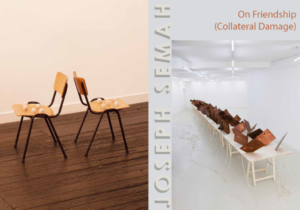 A4 formaat
A4 formaat
85 pagina’s
Full colour
ISBN 978 90 5170 673 4
Euro 19.50
Met drie teksten van Joseph Semah: Het naakte onverheelde vierkant (over Kazimir Malevich), Read Full Text (over Barnett Newman) en On Friendship / (Collateral Damage), over de rol van de CIA in de verspreiding van abstracte kunst.
Het boek bevat verder analyses van het werk van Semah van Emile Schrijver (algemeen directeur Joods Historisch Museum), Reflecties rond een ontluikende vriendschap en Toegang tot de tekst – Verdere kanttekeningen bij teksten van Joseph Semah van Arie Hartog (directeur Gerhard-Marcks-Haus, Bremen, Duitsland).
Uitgave: Stichting Metropool Internationale Kunstprojecten, 2015
www.metropool-projects.com
PARIS SCRATCH ~ bart plantenga [RQ’s First Advertorial]
advertorial /ˌadvəːˈtɔːrɪəl/ – noun: advertorial; plural noun: advertorials – a newspaper or magazine advertisement giving information about a product in the style of an editorial or objective journalistic article.
The complete PARIS SCRATCH is now available from Sensitive Skin.
The skill and intensity with which plantenga chronicles these sorties into life lived at the edge should ensure his place in the next pantheon of great bohemian saints and sinners.
Kevin Riordan, Chicago Reader, Coal Hill Review
I’m really excited to announce this because PARIS SCRATCH is a magical book containing 365 [1 per day] not quite poems; not quite journal entries – “zen blink meta-factual snapshots of everyday Paris life” where the author lived for some 3 years, deejayed, worked everyday jobs and wrote for outlets such as Paris Passion, Paris Free Voice, The Frank, etc.
“A marvelous book – imagine Baudelaire taking a camera & throwing out his pen in a rebellious manner then taking snapshots of everything that comes his way…”
• Nina Zivancevic, author of Living on Air & Death of NYC
bart plantenga spent much time roaming the Paris streets, but instead of documenting with a camera he chose a pen instead, scribbling observations while walking in ragged notepads in a handwriting not quite illegible.
I really like the way he describes it: “Wandering the streets & writing simultaneously fuses two key creative acts – if worn shoe heels & barely legible scribbles can be considered manifestations of creativity. When you live in a city long enough, you wake up one day & what was fascinating & compelling yesterday suddenly becomes the background for routine. You may not even notice you’ve stopped looking, curiosity curbed, eyes down to the ground & fixed on getting from point A to point B. To reinvent my relation to my surroundings – first Paris & later NYC – I came up with the Unloaded Camera Snapshots series, a simple exercise to document the ‘snapshots’ of everyday life. They served as attempts to re-pollinate existence with the fecund, oft-neglected details of the everyday, la vie quotidienne.
plantenga was born in Amsterdam, grew up on the American East Coast, lived all over America, moved to Paris and eventually back to his native Amsterdam. He is the author of the much-excerpted novel Beer Mystic, which Luc Sante described as: “Top-fermented, with a good nose, an acrid middle, a dry finish – bubbly and acidulous in reserved measure – and with ambient yeast peculiar to the Lower East Side, the kind that turns concrete to dust. Plantenga is a poet and a prankster as well as a distinguished bathtub brewer. He deserves immediate investigation.”
His short story collection Wiggling Wishbone and novella Spermatagonia: The Isle of Man earned him positive reviews and favorable comparisons to JG Ballard, Philip K. Dick, William Gibson. Andrei Codrescu, National Public Radio described his writing as “frightfully intelligent.”
His books on yodeling YODEL-AY-EE-OOOO: The Secret History of Yodeling Around the World [Routledge, 2004] Yodel in HiFi: From Kitsch Folk to Contemporary Electronica plus the CD compilation Rough Guide to Yodel received worldwide attention: NPR, BBC, Al-Jazeera, ABC television, WNYC, WFMU, Rolling Stone, Vanity Fair,Washington Post, Entertainment Weekly, UTNE Reader, The Wire, Village Voice, London Review. New York Times Magazine featured Yodel-Ay-Ee-Oooo in its “6th Annual Year of Ideas”. The books have created the misunderstanding that he is one of the world’s foremost yodel experts.
His work has appeared in many academic journals, popular magazines, literary journals: [Ambit, Evergreen Review, Vokno, Exquisite Corpse, Downtown, Urban Grafitti, Fringecore, Sandbox, Carolina Quarterly, Mississippi Review] and mainstream media: The Guardian, Times of London, American Heritage, American Book Review, Actuel, New Hampshire, Michigan Today, Brooklyn Rail, KLM Holland Herald, American Lawyer…
He also writes about refugees for both Vox Populi & Truthdig.
He has lectured/read at the Library of Congress, Rotterdam Opera Days, Sound Escape Conference [Toronto], NYU Fales Library, The Brooklyn Bridge Reading, & countless venues around the world.
Anthologies: Nation-KGB Nonfiction Reader; Waiting for a Train: Jimmie Rodgers’s America; Up Is Up, But So Is Down: New York’s Downtown Literary Scene; Reggae, Rasta, Revolution: Jamaican Music from Ska to Dub [Simon & Schuster]; Sonic Geography Imagined and Remembered; Semiotext(e) SF, Crimes of the Beat, Radiotext(e),Noirotica #3, Fiction International, Best American Erotica 1994 [Simon & Schuster].
He is one of the co-founders of the NYC-based Unbearables writing group, which has produced numerous anthologies and countless thematic lit events since their founding in the later 1980s.
He is also a DJ-radiomaker and has produced guest radio shows for the BBC and VPRO (NL), has appeared on a dozen NPR radio shows, as well as NBC and ABC TV plus public radio in the Netherlands, France and Switzerland. He has produced his radio show Wreck This Mess since 1986 in NYC (WFMU), Paris (Radio Libertaire) & Amsterdam (Radio 100/Radio Patapoe/Mixcloud) where he now lives.
“Paris Scratch” is a beautiful, picturesque read that I’ve been savoring slowly for a couple of weeks now. In the tradition of writers like Georges Perec, Roland Barthes, Patrick Modiano, Jean-Paul Clebert, with echoes of Queneau’s “Exercises in Style,” Plantenga captures a Paris that finds beauty and wonder in simple exchanges between prostitutes and shopkeepers, children, workers, and random passersby. … The synthesis of poetry and prose, the homage to the visual image, and the recognition of the sublime beauty of the unspectacular, make this a compelling and immensely satisfying read. Sip this book like cognac.
Alfred Vitale, author, academic, editor of RANT
The companion to Paris Scratch, NY SIN PHONEY IN FACE FLAT MINOR (Sensitive Skin) documents New York using the same tactics and will appear in November 2016.
Please let me know if you are interested. Thanks so much,
Blandine Broche
* For free pdf or paper reviewer’s copy: contact us & we will forward your request to the publisher.
Printing A Book, Old School
Global Warming And The Future Of Humanity: An Interview With Noam Chomsky And Graciela Chichilnisky
truth-out.org. September 2016. How serious of an issue is climate change? Does global warming really threaten human civilization? Can it be reversed, or is it already late?
In this interview for Truthout, two scholars, Noam Chomsky, one of the world’s leading public intellectuals, and Graciela Chichilnisky, a renowned economist and climate change authority who wrote and designed the carbon market of the Kyoto Protocol, concur on a few key points. First of all, global warming and climate change constitute the greatest challenge facing humanity, and may pose an even greater threat to our species than that of nuclear weapons. Secondly, the operations of the capitalist world economy are at the core of the climate change threat because of over-reliance on fossil fuels and a perverse sense of economic values. Thirdly, the world needs to adopt alternative energy systems as quickly as possible. And finally, it is crucial to explore technologies to assist us in reversing climate change — as time is running out.
C. J. Polychroniou: A consensus seems to be emerging among scientists and even political and social analysts that global warming and climate change represent the greatest threat to the planet. Do you concur with this view, and why?
Noam Chomsky: I agree with the conclusion of the experts who set the Doomsday Clock for the Bulletin of Atomic Scientists. They have moved the Clock two minutes closer to midnight — three minutes to midnight — because of the increasing threats of nuclear war and global warming. That seems to me a credible judgment. Review of the record shows that it’s a near miracle that we have survived the nuclear age. There have been repeated cases when nuclear war came ominously close, often a result of malfunctioning of early-warning systems and other accidents, sometimes [as a result of] highly adventurist acts of political leaders. It has been known for some time that a major nuclear war might lead to nuclear winter that would destroy the attacker as well as the target. And threats are now mounting, particularly at the Russian border, confirming the prediction of George Kennan and other prominent figures that NATO expansion, particularly the way it was undertaken, would prove to be a “tragic mistake,” a “policy error of historic proportions.”
As for climate change, it’s by now widely accepted by the scientific community that we have entered a new geological era, the Anthropocene, in which the Earth’s climate is being radically modified by human action, creating a very different planet, one that may not be able to sustain organized human life in anything like a form we would want to tolerate. There is good reason to believe that we have already entered the Sixth Extinction, a period of destruction of species on a massive scale, comparable to the Fifth Extinction 65 million years ago, when three-quarters of the species on earth were destroyed, apparently by a huge asteroid. Atmospheric CO2 is rising at a rate unprecedented in the geological record since 55 million years ago. There is concern — to quote a statement by 150 distinguished scientists — that “global warming, amplified by feedbacks from polar ice melt, methane release from permafrost, and extensive fires, may become irreversible,” with catastrophic consequences for life on Earth, humans included — and not in the distant future. Sea level rise and destruction of water resources as glaciers melt alone may have horrendous human consequences.
Graciela Chichilnisky: The consensus is that climate change ranks along with nuclear warfare as the top two risks facing human civilization. If nuclear warfare is believed to be somewhat controlled, then climate change is now the greatest threat.
As difficult as it is to eliminate the risk of nuclear warfare, it requires fewer changes to the global economy than does averting or reversing climate change. Climate change is due to the use of energy for industrial growth, which has been and is overwhelmingly based on fossil fuels. Changing an economic system that is bent on uncontrolled and poorly measured economic growth and depends on fossil energy for its main objectives, is much more difficult than changing how nuclear energy is used for military purposes. Some think it may be impossible.
Joseph Conrad Collection
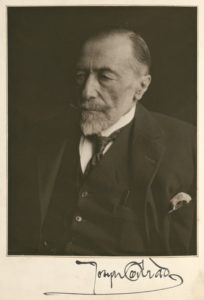 Joseph Conrad was born to Polish parents in 1857 in Berdychiv, which is part of modern Ukraine. As a young man he spent 19 years as a merchant marine sailing on French and British ships. His years at sea and the various persons he encountered served as inspiration for events and characters in his subsequent literary career. English was his third language (after Polish and French), which imbues his writing with a distinct style.
Joseph Conrad was born to Polish parents in 1857 in Berdychiv, which is part of modern Ukraine. As a young man he spent 19 years as a merchant marine sailing on French and British ships. His years at sea and the various persons he encountered served as inspiration for events and characters in his subsequent literary career. English was his third language (after Polish and French), which imbues his writing with a distinct style.
The Joseph Conrad collection contains manuscripts, letters, documents, and photographs. Of particular significance are manuscripts for several of his novels, including Almayer’s Folly (1895), Chance (1913), and Victory (1915). His outgoing correspondence includes letters to Henry D. Davray, Norman Douglas, Henry James, Alfred A. Knopf, and others.
Incoming correspondence has been excluded from this online collection due to copyright concerns.
This collection was digitized as part of Project REVEAL (Read and View English & American Literature).
Go to: http://hrc.contentdm.oclc.org/
Joseph Conrad ~ Nostromo
Author’s Note
“Nostromo” is the most anxiously meditated of the longer novels which belong to the period following upon the publication of the “Typhoon” volume of short stories.
I don’t mean to say that I became then conscious of any impending change in my mentality and in my attitude towards the tasks of my writing life. And perhaps there was never any change, except in that mysterious, extraneous thing which has nothing to do with the theories of art; a subtle change in the nature of the inspiration; a phenomenon for which I can not in any way be held responsible. What, however, did cause me some concern was that after finishing the last story of the “Typhoon” volume it seemed somehow that there was nothing more in the world to write about. Read more
- Page 2 of 3
- previous page
- 1
- 2
- 3
- next page


